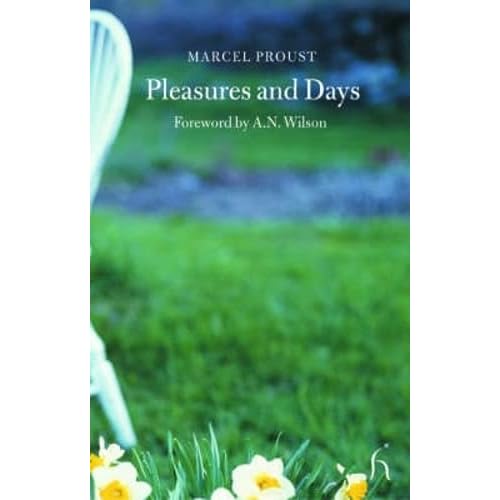Who's Afraid of Marcel Proust?
If, for entirely understandable reasons: it apparently goes on for ever; style is labyrinthine; plot, in so far as there is one, is slow to virtually stationary.... you are reluctant to read even a page by Marcel Proust, but at the same time have a slightly guilty feeling that as a serious reader you ought to do so, I'd like to suggest a possible way in. Hesperus Press (http://www.hesperuspress.com/catalogue/default.asp),
whose motto is ‘Et remotissima prope (to bring near what is far), publish "works by illustrious authors, often unjustly neglected or simply little known in the English-speaking world.” The books are beautifully-designed little paper-backs and Proust’s Pleasures and Days, originally published in 1896 as Les Plaisirs et Les Jours and here translated by Andrew Brown, is one of them. It's a series of sketches and short stories depicting the lives, loves, manners and motivations of a host of characters; their amorous entanglements, idle vanities, feigned morality and, above all, their snobbery – Proust is very strong on snobbery.
The cover blurb reads: "A stunning volume of philosophical reflections, short narratives and poems", offering us “ an early glimpse into Proust’s literary genius, and revealing him as both a remarkable chronicler of metropolitan life and a compassionate recorder of the most poignant sensations and recollections."
There is an excellent Forward by A.N. Wilson, where we learn that Proust completed these stories, poems and fragments before he was 24 years old, and many of them were written when he was even younger. (One can only be awed by the knowingness, the psychological perspicacity displayed by one so young.) "What will immediately strike any reader of this volume of short stories is how surely, from the first, Proust knew his theme." And Wilson helps us to understand the literary import of Proust’s style: "The complex syntax, those long sentences with their coiling clauses that he was already practising in Pleasures, is deployed in The Search (i.e. In Search of Lost Time ) to make us slow down and take the time to notice the world and the richness of its interconnections."
Of course, if you have never even dipped your toe into A La Recherche Du Temps Perdu, that last remark won’t mean much to you, but Pleasures and And Days will give you an authentic introduction to the Proustian style and themes so that, who knows?-you may be tempted to launch forth on the great work itself!


No comments:
Post a Comment